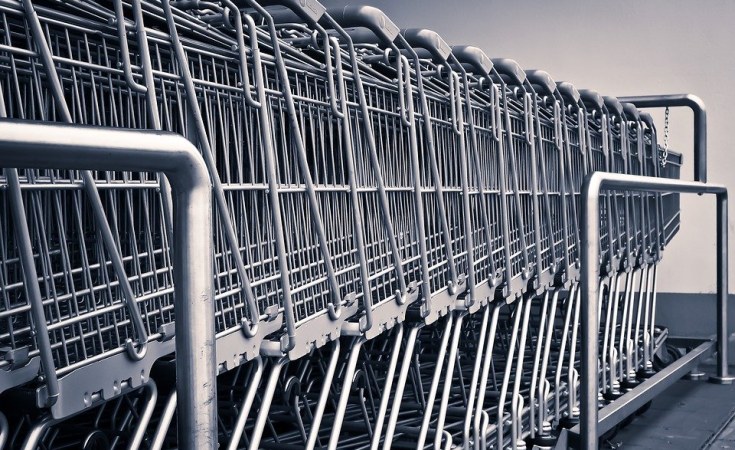Nigeria's food inflation reached 17.2 per cent and 18.37 per cent in March and April respectively, fuelled by factors that go beyond the pandemic.
Food prices have risen globally in recent years. It began with the coronavirus pandemic that made farmers and food producing companies unable to cultivate and produce food in sufficient quantities. Many food factories ran out of raw materials for their operations.
Farmers have since returned to the fields and factories have reopened but food prices have remained high.
In Nigeria, the cause of food inflation goes beyond the pandemic. Food inflation reached 17.2 and 18.37% in March and April respectively.
Below are four major factors that have kept food prices high in the country in the last six months:
Fuel Scarcity
Since February 2022, Nigeria has been experiencing unprecedented fuel scarcity across most states of the country.
The panic in fuel buying issues started last year due to the government's plans to remove fuel subsidies but it got worse when the federal government said its agents had imported substandard fuel. This forced motorists to charge more for the transportation of goods and services and the aftermath of this translated to the sudden rise in prices of foodstuffs across the country.
Electricity Shortage
The nation's electricity grid has collapsed at least five times since the beginning of 2022. Experts have attributed this to poor utility performance, theft of grid equipment, weather, gas supply, insufficient funding and the age of grid infrastructure.
The erratic power supply has pushed business owners (food processing and manufacturing companies) to seek alternative but expensive means to power their tools so as to prevent food spoilage across agricultural value chains, translating to high cost of food production, supply and definitely high cost of food in the market shelves.
Russia-Ukraine Crisis
The ongoing Russia-Ukraine crisis has also imposed unprecedented strain on the food supply chain of countries that source most of its agricultural products as well as other raw materials from both countries. Nigeria is still on the receiving end as it imports some agricultural products from both countries and mostly depends on the imports from these countries.
Data from the United State Department of Agriculture (USDA) revealed that only less than three per cent of the approximately 6 million metric tons of wheat consumed in Nigeria annually are locally sourced. Also, data from the Nigeria Bureau of Statistics (NBS) confirms that Nigeria imported wheat worth over N128.1 billion in the 9-month period of 2021, and recorded a N144.14 billion durum wheat import in 2020.
Durum wheat is the third highest consumed grain in the country as it is used in making a number of other foods like bread, pasta, noodles, biscuits and other food.
While the Russia-Ukraine crisis persists, the effects are evident in the prices of the aforementioned food items, with the price of bread alone rising by over 20 per cent within this period.
Insecurity
Within the past five years, aside from the over a decade long Boko Haram insurgent crisis ravaging Nigeria's North-East, ethnic conflicts and banditry across the North-central states in the country have also taken a toll on the region, leaving several thousands of people killed and millions displaced, who are mostly farmers. This has out a strain on food production across these regions.
The glaring insecurity issues in the country have led to an acute rise in food prices due to the substantial reduction in food production. From July 2020 till date, prices of basic food items like rice, beans, yam vegetables and poultry products among others have seen a steady rise, with millions of Nigerians struggling to adjust.
The gruesome activities of herdsmen, kidnappers, bandits and Boko Haram have displaced farming communities, disrupted markets and limited agricultural production as most farmers deserted their farmlands and escaped to other regions for safety.
Farmers now have restricted access to regional markets in these affected regions and find it difficult to go to their farms due to fear of being kidnapped or killed.
Between 2011 and 2021, Boko Haram was responsible for 32.8 thousand deaths in Borno state alone which is the country's largest wheat producing state.
While the state production used to account for about 30 per cent of the national wheat production, it now contributes almost nothing to the total of about 420,000 tonnes, which is 4.5 million tonnes shortfall of national consumption.
Foreign Exchange Problem
Nigeria has struggled for years to meet high demand for foreign exchange, needed for importation. The government's strict capital control policies have not helped much.
As a consumer economy that relies heavily on imports, the scarcity of FX helps drive prices of commodities especially food up as dollar is needed to buy commodities like wheat, maize, diary products and other products that Nigeria largely imports. The dollar to naira rate as of Thursday stood at N614 in the black market and 415 official rate, down from about N200 in 2016.


